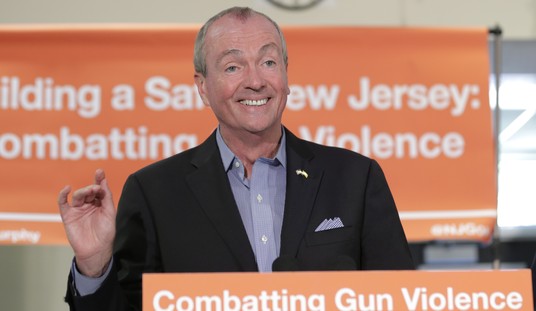Now that the Tea-nami has swept through the House of Representatives, the activists in the Tea Party are already looking at 2012. Democrats will be especially vulnerable in that cycle, as they have to defend 23 seats while Republicans only have to defend 10. Most see the dynamic of 2012 as a return of the Senate to GOP control, especially if the economy continues to stagnate for another year, as most economists predict. But as Shira Toeplitz reminds us at Politico, Democrats aren’t the only members of the Class of 2006 looking over their shoulders:
Another bloody Republican Senate primary election season is taking shape for 2012, with potentially serious intra-party challenges percolating in close to a half-dozen states.
Polls indicate that at least two veteran GOP senators are highly vulnerable to challenges on their right flank — Utah Sen. Orrin Hatch and Maine Sen. Olympia Snowe – and there are rumblings about potential GOP bids against Nevada Sen. John Ensign, Texas Sen. Kay Bailey Hutchison and Indiana Sen. Dick Lugar as well.
On the whole, the 2012 map looks extremely promising for the GOP. After posting a six-seat gain in 2010, Republicans are in a position to pick up even more seats in the 2012 cycle, with 21 Democratic senators up for re-election, including two Independents who caucus with them, compared to just 10 Republicans.
But the possibility of multiple fractious primary challenges casts a shadow over the 2012 cycle after an election season marked by two GOP Senate incumbents who were denied renomination, a third who switched parties to avoid a tough primary and several other messy primaries that likely cost the party a chance at winning a majority.
Of the four mentioned, two seem unlikely to have to worry about getting primary challenges. Orrin Hatch has a reputation for building consensus in the upper chamber, but also has maintained key connections to conservative activists. He has angered the base less than his former colleague Robert Bennett did, who got beat in the GOP convention by newly-elected Senator Mike Lee. Even before that upset occurred, Hatch had begun outreach to Tea Party activists to shore up his right flank. Popular conservative Rep. Jason Chaffetz might have the standing to push Hatch aside, but expect Hatch to make a good case for his worth in the next two years of battles over ObamaCare and budgets.
Similarly, Dick Lugar will probably survive, assuming he doesn’t want to retire. Lugar is more problematic for conservatives than Hatch, but he also comes from a less conservative state than Utah. Unless Mike Pence decides to challenge him (and he would have run this year if he wanted a Senate seat), Lugar would likely do better in the primary system than Hatch may do in the convention system Utah uses. Again, Lugar has two years to convince Hoosiers that while he’s not deeply conservative, he’s conservative enough. Mitch Daniels could give him a tough primary, though, and Daniels may look at that as an option instead of a long-shot presidential run. Marlin Stutzman could try again, too, but falling short of Dan Coats in a Tea Party year suggests that he may not have enough support to get close.
Ensign and Snowe should be nervous, but for different reasons. Ensign has deeply troubling ethics problem in Nevada, which his explanations have not begun to clear up. That situation has percolated for the last couple of years and may never result in any official action, but Nevada Democrats will be looking to target him — and will probably succeed if they do. The GOP needs to find a good candidate who can run well in a general election.
Snowe’s problems are obvious. She crossed over to vote for Democrats on key pieces of legislation like Porkulus and is always a wild card in play for big-government programs. Toeplitz reports that Maine Republicans have noticed — and they’re not happy:
In Maine, polls show ominous signs for Snowe. Even though she has some of the highest job approval ratings of any senator up for re-election in 2012, a September Public Policy Polling survey of likely Republican voters showed Snowe losing by a wide margin to a generic “more conservative” candidate, 29 percent to 63 percent.
When matched against 2006 GOP gubernatorial nominee Chandler Woodcock – who a PPP spokesman said was merely a placeholder in the survey—Snowe trailed by a 24-point margin. Woodcock did not return a request for comment on whether he is actually interested in challenging Snowe, but the senator has already attracted a little-known primary opponent: Scott D’Amboise, who announced his campaign to challenge the senator as early as last February.
Still, even without a top-flight Republican challenger on the horizon, Snowe worked to shore up her conservative credentials by campaigning for and recording automated phone calls for tea party-backed Republican Governor-elect Paul LePage, who is at odds with the two-term senator on social issues such as abortion and gay rights.
Snowe’s late discovery of her inner conservative won’t wipe the stain of Porkulus from her record. Her vote in favor of the package turned out to be not only wrong on policy, but also deprived the GOP of the means to force Democrats into allowing them to amend and shape the bill. It was a stunning betrayal from both Snowe and her colleague Susan Collins, who will have to answer for that in 2014.
There is nothing wrong with making incumbents nervous and demanding accountability. This time, with some experience under its belt, the Tea Party will likely field even better alternatives in Republican primaries. They should be nervous.








Join the conversation as a VIP Member